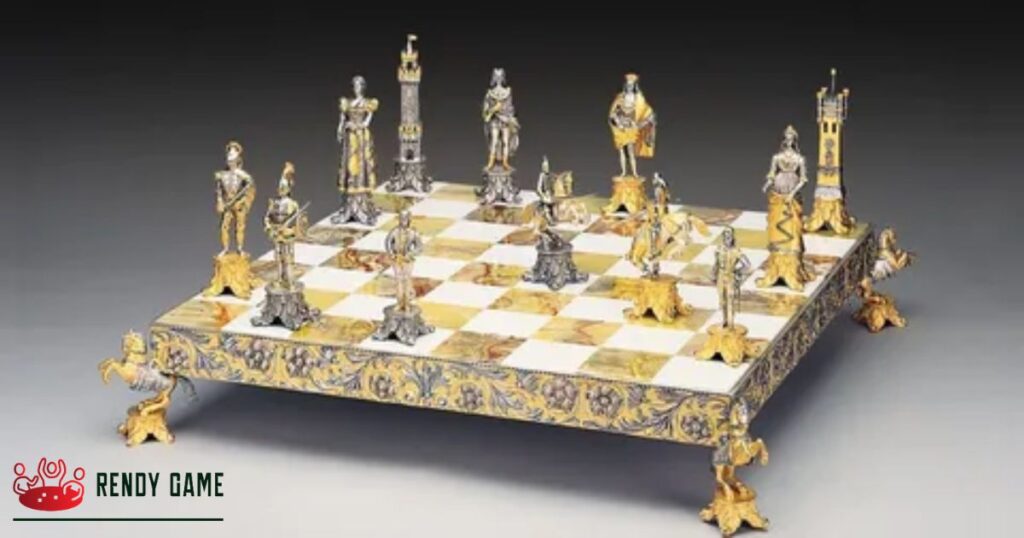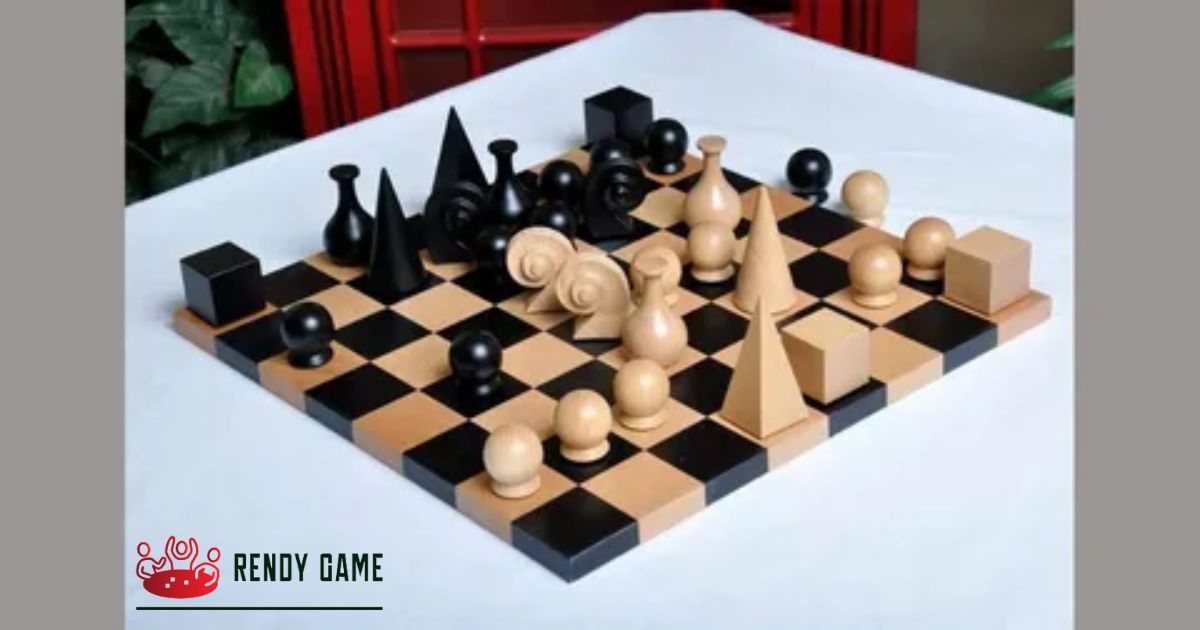Chess is played on a board. The board has 64 squares with 8 squares on each side. There are 16 pieces for each player. The pieces include pawns, rooks, knights, bishops, king and queen. Players take turns moving one piece at a time. The goal is to capture the other player’s king. Pieces move in different ways across the board.
Chess uses strategy and critical thinking. There is no element of chance or luck. Chess fits the definition of a board game. It has playing pieces, is played on a board, and uses strategy. So chess is considered a classic board game.
Is chess an official sport or just a board game
Chess is played on a board with strategy pieces. Players think carefully to move the pieces. They try to capture the opponent’s king piece. Chess uses mental skill and strategy. It does not use physical athletic skill. Chess has organized tournaments and championships. Major international events include the Chess Olympiad and World Chess Championship.
Chess requires mental stamina and endurance like sports. In 1999, the International Olympic Committee recognized chess as a sport. But chess is not featured in the Olympic Games. Chess also does not have a major professional league yet. So chess is considered both a competitive mental sport and classic strategy board game. Chess blends attributes of sports for the mind with board gameplay.
5 Reasons why Chess is the Most Popular Board game
- Chess is old – Chess has been played for over 1500 years. Its history and tradition help its popularity.
- Chess develops minds – Playing chess exercises both sides of the brain. It improves memory, focus, planning, and creativity.
- Chess is competitive – From local clubs to the World Chess Championship, the competition draws interest.
- Chess is affordable – Only requiring a board and pieces, chess has widespread accessibility and costs little to play.
- Chess is portable – Chess boards and pieces easily transport in a bag. Players can enjoy chess almost anywhere.
The strategy and mental rigor of chess created enduring interest for centuries. And chess just requires a board and pieces to stimulate minds young and old. These qualities make chess the world’s most popular board game.
Chess Board Game Benefits

- Teaches planning and foresight – Chess requires thinking several moves ahead and envisioning consequences of decisions, teaching valuable strategic planning skills.
- Improves concentration – The complex mental tasks involved in chess compel focus and strengthen ability to concentrate for long periods.
- Boosts memory – Remembering moves, patterns, and chess games activates and stretches memory capacity.
- Develops creativity – Unconventional moves and strategies foster fluid and creative thinking. Young minds learn to think outside the box.
- Cultivates logical thinking – Weighing options and tactical possibilities builds the capacity to think logically and rationally.
- Provides mental stimulation – The all-encompassing demands of chess charge up the brain with positive mental stimulation.
From sharpening critical cognitive skills to powering up mental energy, the royal game offers a complete mind workout. Immersing young students in chess can unlock intellectual gifts that last a lifetime.
Why Is Chess Not a Sport
- No physical exertion – Chess is a sedentary game relying solely on mental effort. There are no physical demands like strength, speed, or stamina that constitute athletic sports. Strategic thinking drives competitive chess rather than physical abilities.
- No motor skills – Sports require varied motor skills to run, jump, kick a ball etc. Chess only needs the basic motor functions to move pieces. The mental aspect outweighs sheer physical talent.
- Limited physical prowess – Success in chess depends on mental acuity, focus, planning etc. Physical advantages like strength, height or speed offer no real chess merits. Intellectual gifts determine chess mastery instead of athleticism.
- No physical training – Practicing chess is cerebral, while sports mandate rigorous physical conditioning and training. Chess players analytically sharpen skills rather than build muscles or stamina.
While the competitive elements borrow from sports, the lack of physical rigors and motor skills ultimately separate chess as a cognitive game reliant on strategy over athletic talent. The essential mental battle distinguishes chess more as an art form.CopyRetry
Is Chess A Skill or A Talent
Chess is undoubtedly a skill that can be developed through practice, study, and dedication. It requires an understanding of rules, strategies, and tactics, which can be learned and improved over time
| Point | Key Idea |
| 1 | Chess is a skill honed through practice, study, and dedication. |
| 2 | Understanding rules, strategies, and tactics can be learned. |
| 3 | Hard work and commitment can make strong players without talent. |
| 4 | Talent offers a natural advantage in visualizing and analyzing positions. |
| 5 | Talent doesn’t replace the need for skill development through training. |
| 6 | Success in chess often combines skill developed through practice and initial talent advantage. |
What Type Of Board Game Is Chess
Here are some key characteristics that define the type of board game chess is:
- Abstract strategy – Chess is an abstract strategy game without any accompanying story, theme or characters. The focus relies purely on strategic gameplay.
- Perfect information – All players have complete data about the position of all game pieces at all times. No probabilities or hidden information come into play.
- Deterministic – There is no element of luck or chance involved in chess. Outcomes depend entirely on the decisions and skills of the players.
- Turn-based – Each player makes a single move of a game piece per turn. The gameplay goes back and forth in a defined sequence.
- Finite length – Chess cannot go on indefinitely. The game ends definitively in a win, lose or draw outcome after a finite number of moves.
- Skill-based – Victory in chess depends completely on mental acuity, strategic thinking, positional analysis, tacticalsharpness and decision-making skills rather than chance.
In summary, chess is a turn-based, deterministic, perfect information, zero-chance, abstract strategy board game relying purely on mental skill.
Is Chess Good For The Brain
Yes, chess is extremely good for developing the brain due to the intense mental workouts it provides. Here’s how chess as a board game enhances brain power:
- Boosts IQ – Chess helps enhance intelligence. Studies find chess players have higher IQ scores compared to non-chess players. The complex analysis strengthens innate IQ.
- Grows grey matter – Research shows playing chess can help generate new cells and neurological connections in the brain over time. This literally grows grey matter.
- Energizes both hemispheres – Chess utilizes functions on both left and right hemispheres like visualization, creativity, calculations etc thereby energizing the whole brain.
- Enhances memory – Recalling moves, tactics and games requires great memory. Regular chess trains and expands memory capacity.
- Heightens focus – Chess demands rigorous concentration for sustained periods to assess positions and calculate variations. This stretches attention span.
As an engrossing brain game, chess offers full-spectrum mental enrichment unmatched by most other board games. From young children to senior citizens, anyone can enjoy chess while also boosting brain power.
Environmental significance of chess board game
Chess has been played for centuries. The materials used in boards and pieces changed over time. Old chess sets were made from ivory, metals, and rare wood.
These materials often came from unsustainable sources. Modern chess sets use renewable materials instead. Boards are made from sustainably forested wood today. The pieces also use metals and plastics from recycled sources. Digital chess reduces waste further. Software allows playing chess online without any board or pieces.
Going paperless to play games like chess reduces landfill waste. Digital chess also saves trees, water, and energy used to create physical sets. Eco-friendly production helps chess contribute less waste. Renewable materials and online play promote sustainability. Chess shows how games and sports can adopt greener practices over time. Traditional games like chess can work to achieve positive environmental impacts.
FAQs
What is the most tricky piece in chess?
The queen is the most versatile and tricky piece in chess.
Does chess raise your IQ?
Chess can enhance cognitive skills but doesn’t directly raise one’s IQ.
Why don’t girls play chess?
Girls play chess, but there is a gender gap in participation and recognition. Efforts are being made to bridge this gap and promote inclusivity.
Do skilled chess players differ from ordinary people?
Yes, skilled chess players often possess advanced strategic thinking and problem-solving abilities.
Conclusion
In the “Is Chess A Board Game?” debate, the consensus is clear: Chess is indeed a board game. Its historical origins, clearly defined game play, and adherence to the hallmarks of board games affirm its place in this category. The 8×8 chessboard is the canvas where strategic battles unfold, emphasizing the centrality of the board in the game.
Beyond its board game status, chess represents intellectual prowess, timeless entertainment, and a universal language of strategy. Whether enjoyed casually among friends or fiercely contested at the grandmaster level, chess retains the core elements of a board game: a unique board, specific rules, two-player competition, and a focus on strategy.

